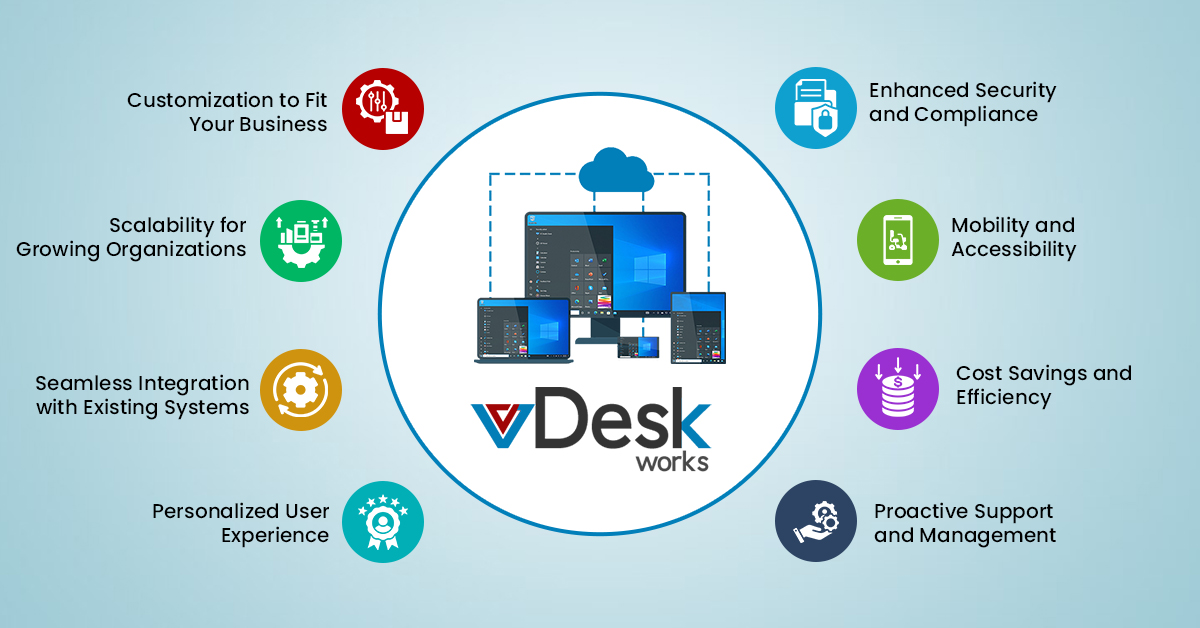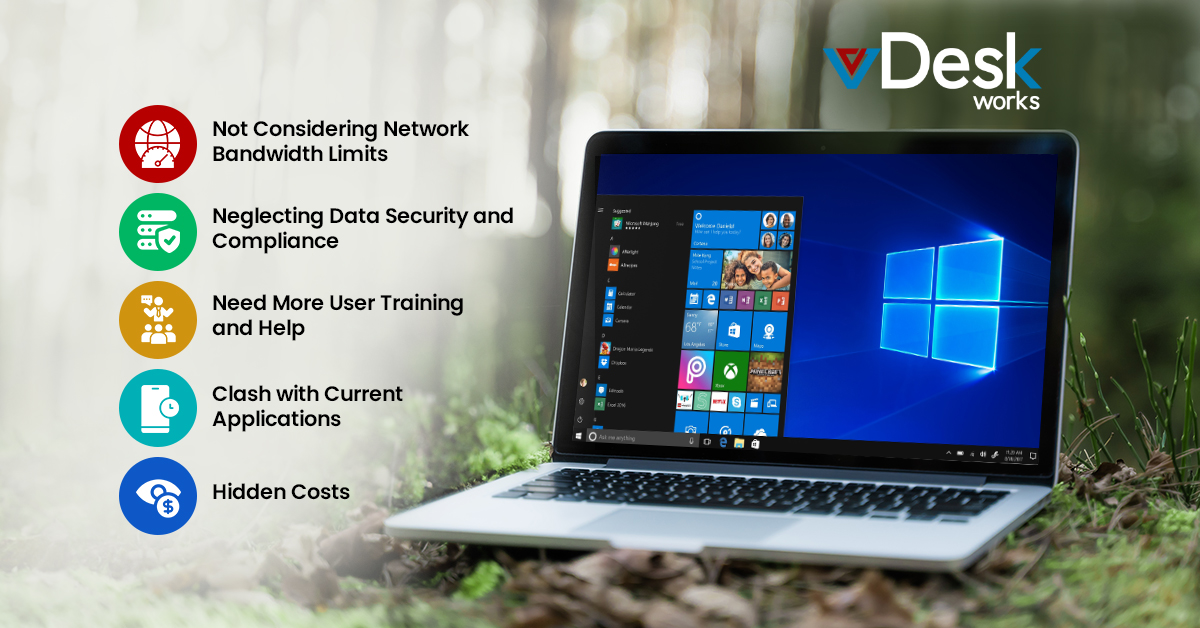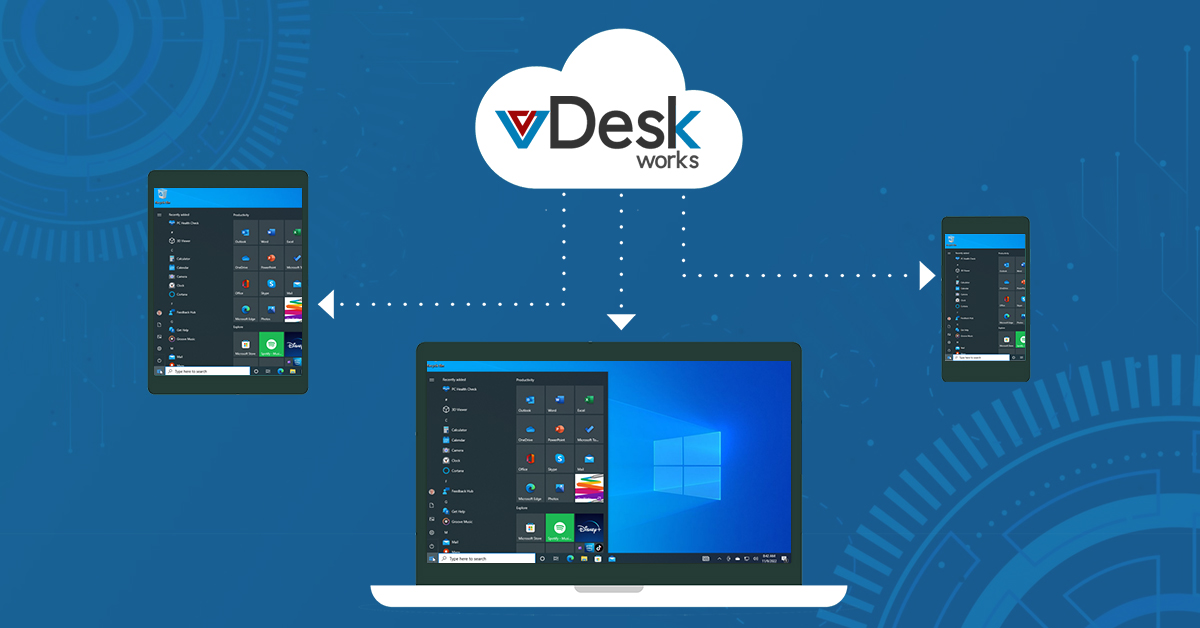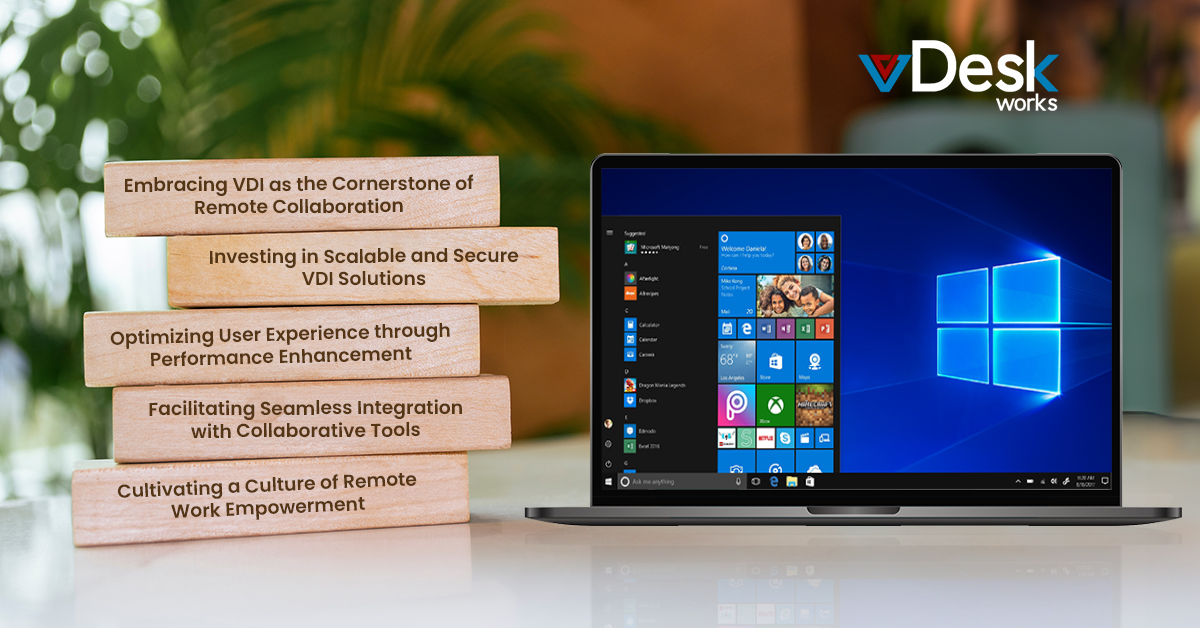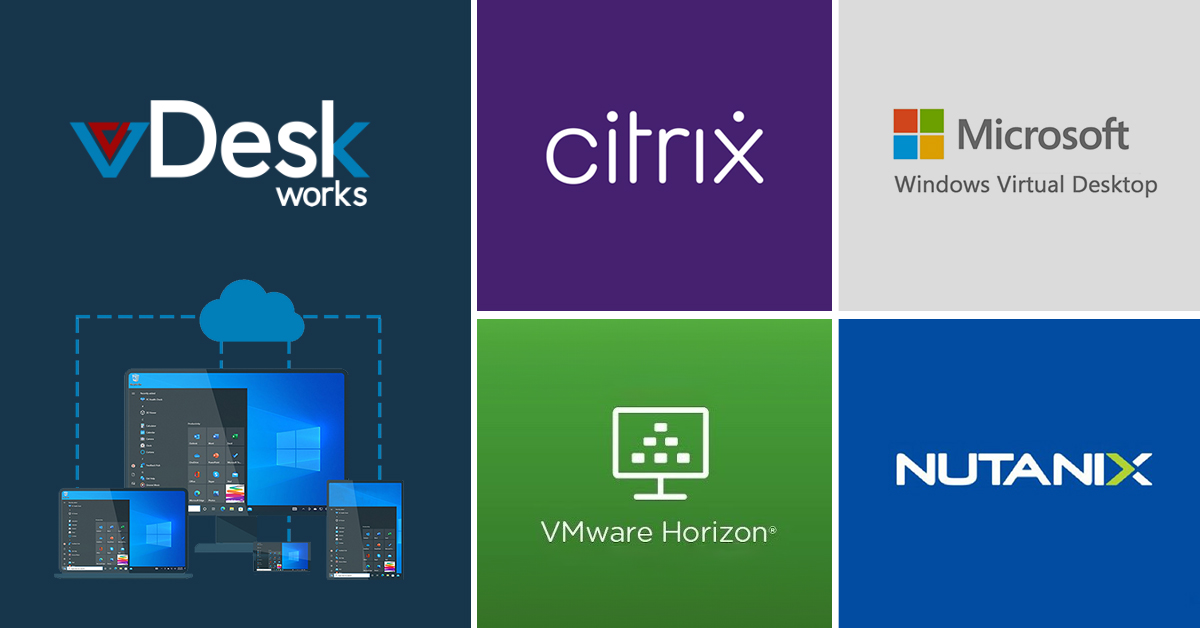Remote and hybrid work are here to stay. To keep up with this shift, many businesses have adopted the use of cloud-hosted desktops. A cloud-hosted desktop is a virtual environment where users can access their files and information from any device. Instead of being stored on the device, the data is stored on a remote server. Due to being stored on a remote server, virtual desktops are easy to deploy to users. Many industries can benefit from using cloud-hosted virtual desktops, such as education, healthcare, legal services, accounting, marketing, and construction. Some of use cases for using cloud-hosted virtual desktops include reducing costs, assisting in disaster recovery, supporting freelance work, assisting in green IT, and assisting in mergers and acquisitions.
Overview of Use Cases
1. Reduces Costs
One use case for cloud-hosted desktops is that they can help companies reduce their operational costs. Virtual desktops can help companies save costs since they don’t have to provide devices to employees and freelancers. Instead, they can use their own devices. The BYOD (bring your own device) method is helpful for companies that are fully remote since they wouldn’t have to ship a new computer to a new employee that lives halfway across the country.
Another way that cloud-hosted virtual desktops can help reduce operational costs is through the IT support that the providers offer. If employees are having technical difficulties while logged on to the infrastructure, they can contact the service provider’s support team. The issue will then be resolved by a support agent. Having this support lets large companies avoid the costs of having an extensive IT support team in each of their offices. Using cloud-hosted virtual desktops also makes it easier for small to mid-sized businesses to manage their IT.
2. Disaster Recovery
Another use case for using cloud-hosted virtual desktops is the disaster recovery options they offer. There are many issues that could occur while users are working on a project. There could be a power outage, or malware could infect the device. Normally, these occurrences would result in a loss of data and cause the company to lose a lot of money. When companies use cloud-hosted virtual desktops, however, the data is routinely backed up and restored, so the data will still be safe in the event of one of these disasters. Managers can adjust the frequency at which data is backed up. In the event of a user’s device getting stolen or lost, the manager can remove the device’s access to the system. The user can then log back into the system using a new device.
3. Supporting Freelance Work
Another use case for cloud-hosted virtual desktops is their ability to support freelance work. Many virtual desktop providers can be accessed from any device and any location. Cloud-hosted virtual desktops can be used on Max, Linux, Android, iOS, and Windows systems. This flexibility makes it ideal for freelancers that aren’t tied to a single office. Freelancers can communicate with their clients and work on projects while they are traveling. Virtual desktops also include dashboards where users can get a complete overview of their central systems, making it helpful for freelancers that need to view all of their work in a centralized location.
4. Assisting in Green IT
Sustainability and environmentalism are high priorities for companies these days. It is beneficial for organizations to cut back on their carbon footprints. Cloud-hosted virtual desktops are good for the environment since they use less power than traditional desktops. The remote cloud servers also use less power transmissions than traditional, on-premise servers.
5. Assisting in Mergers and Acquisitions
The use of cloud-hosted virtual desktops can also assist in mergers and acquisitions. Since many cloud-hosted desktops have high levels of scalability, new users can easily be added as the organization goes through a merger. Any software that the merger uses can also be added to the remote cloud server.
As companies continue to have employees work remotely, the need for cloud-hosted virtual desktops continues. Industries such as education, healthcare, legal services, accounting, marketing, and construction have adopted the use of cloud-hosted virtual desktops. There are several use cases for using cloud-hosted virtual desktops. These use cases include reducing operational costs, helping in disaster recovery, supporting freelance work, supporting green IT, and assisting in mergers and acquisitions.
Organizations looking for the most efficient virtual desktop provider should look into vDesk.works. vDesk.works’ cloud-hosted virtual desktops include useful features such as security measures, cross-device compatibility, a centralized dashboard, scalability options, and integration with legacy applications. vDesk.works has provided innovative software solutions to companies of all sizes and industries since 2014. For more information on vDesk.works’ cloud-hosted virtual desktops, visit https://vdeskworks.com/ to speak with a product representative and receive a live demo.


 Lauren King
Lauren King


